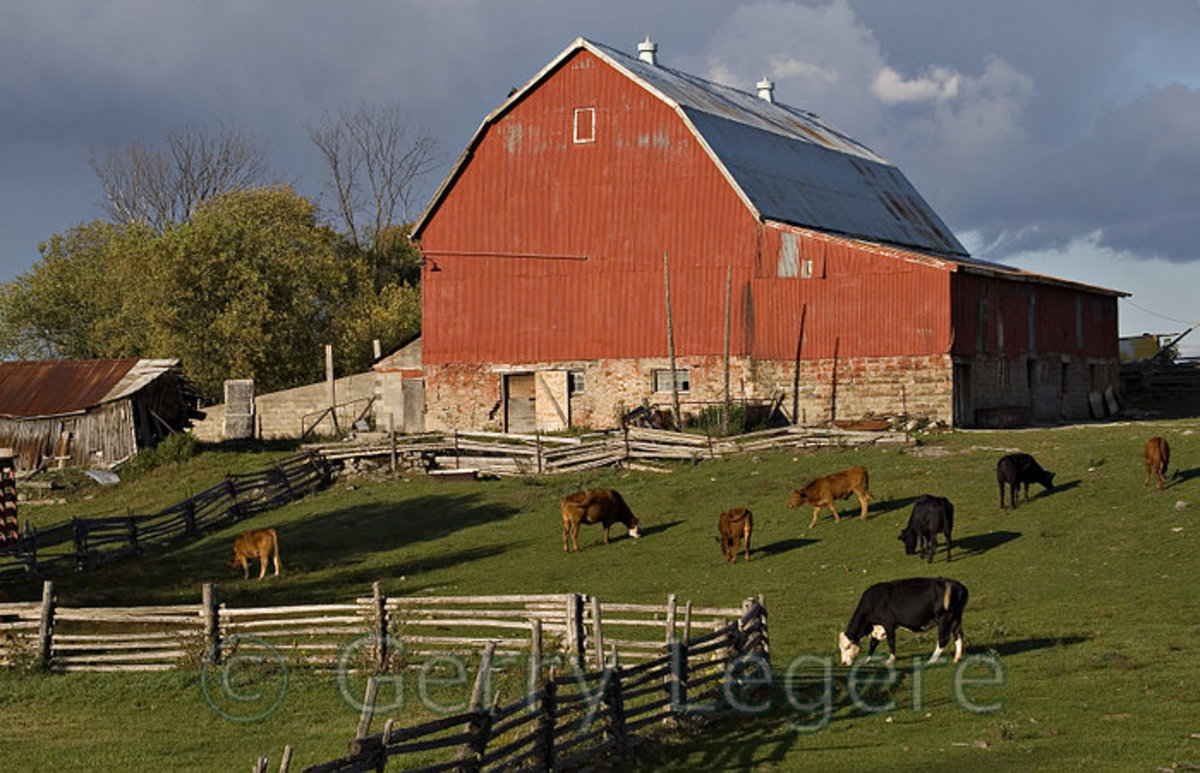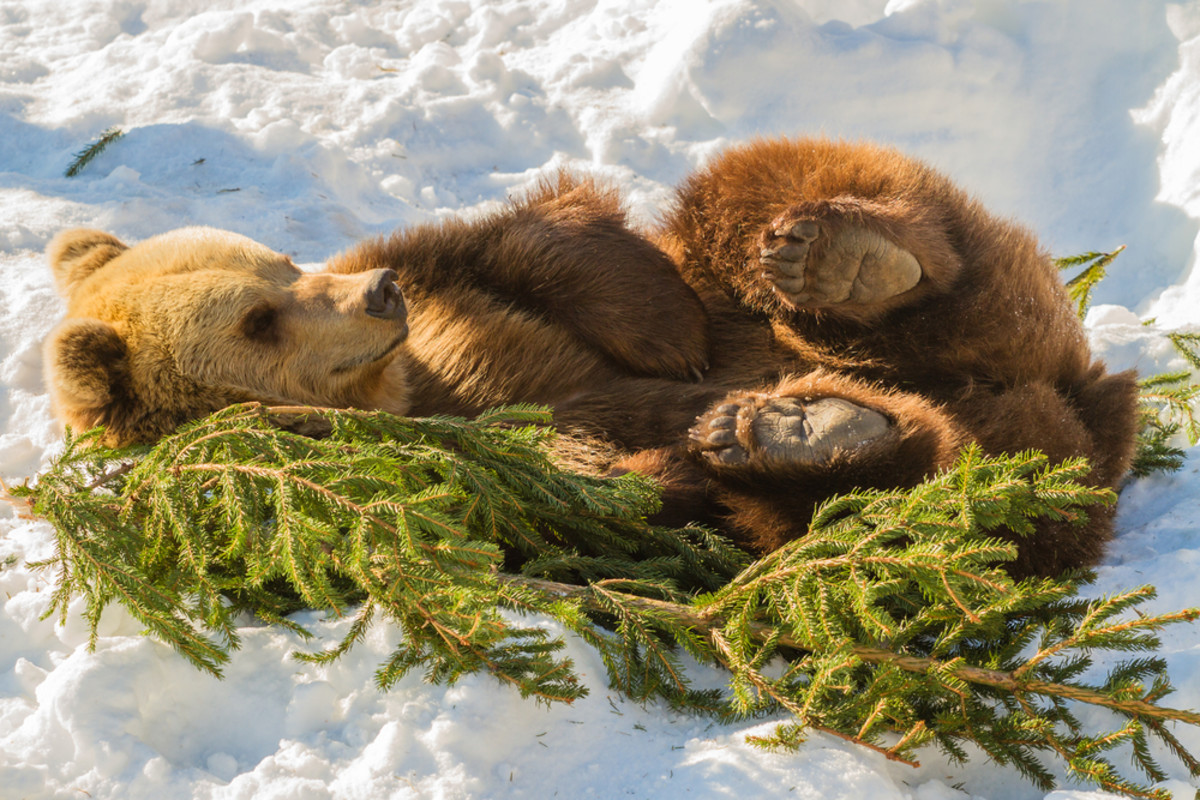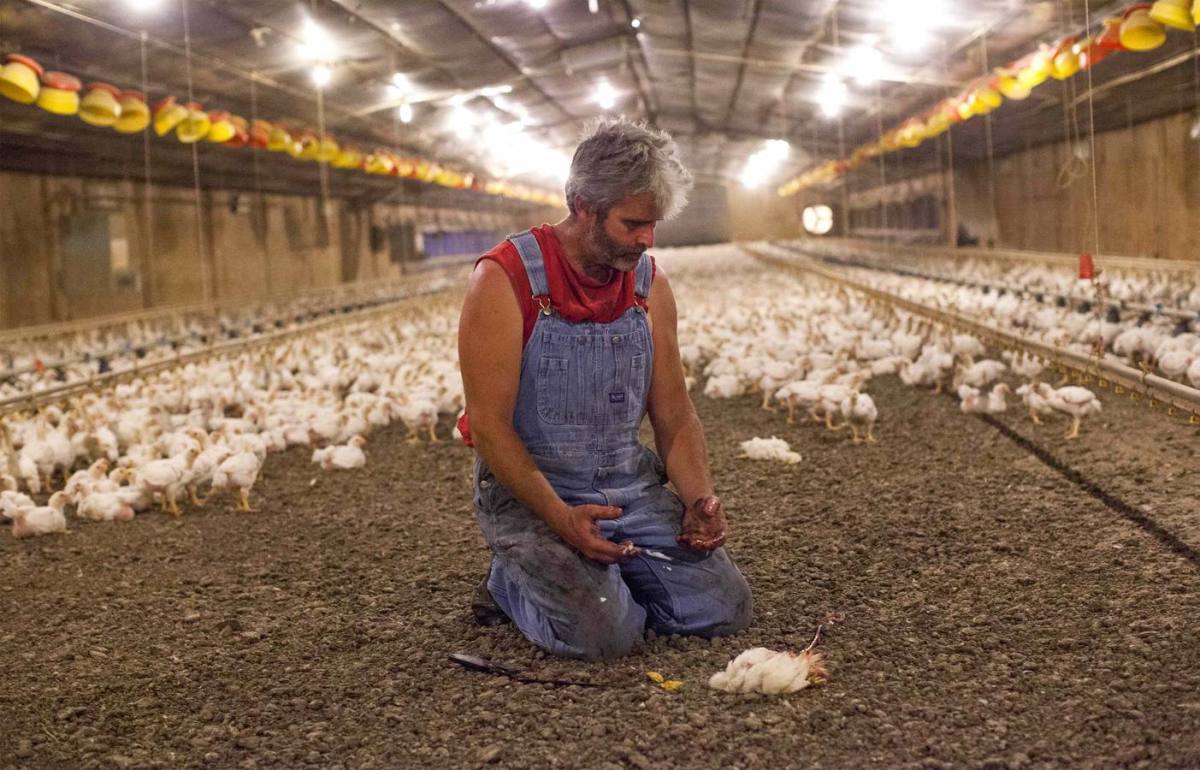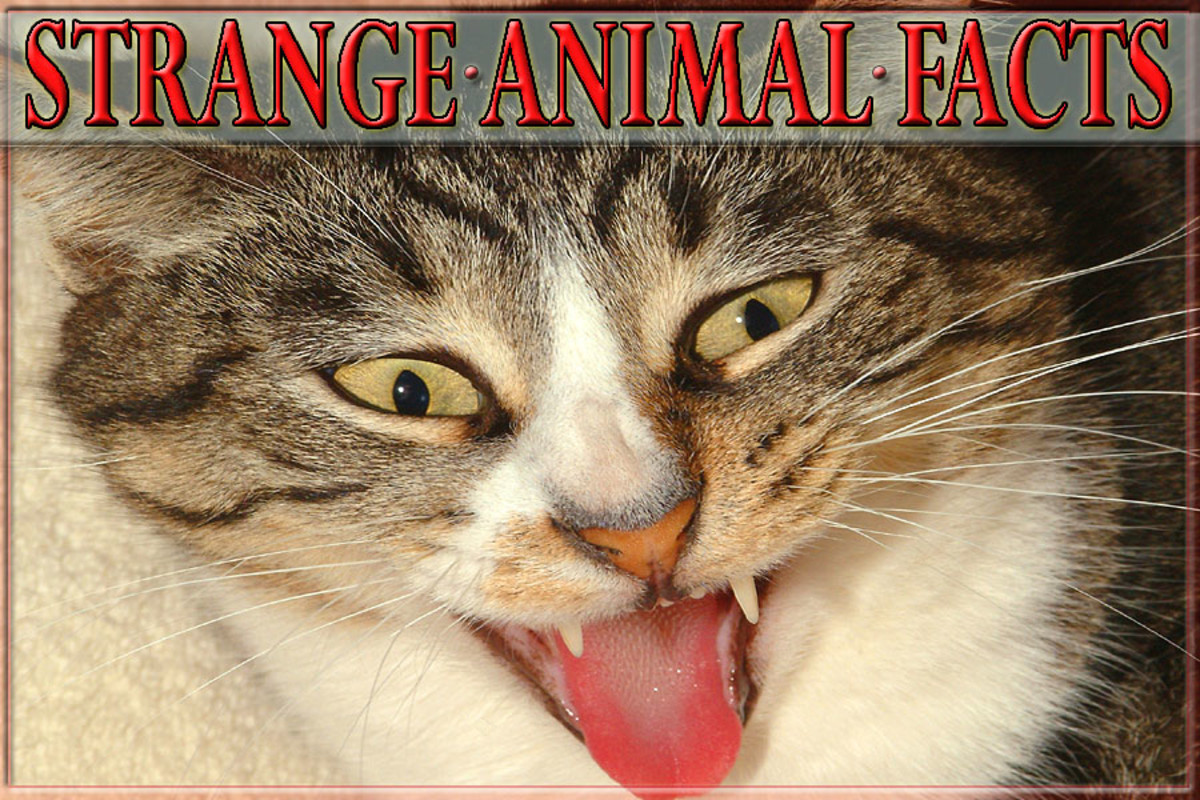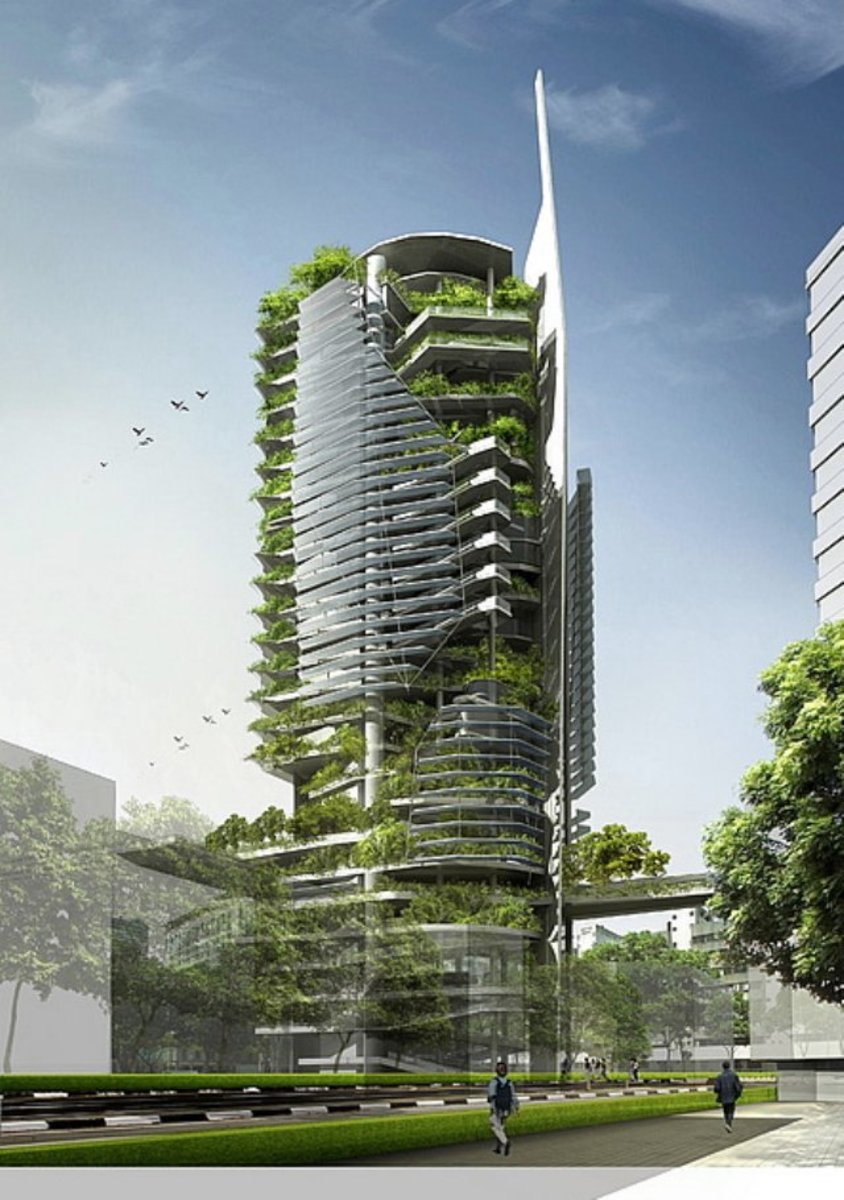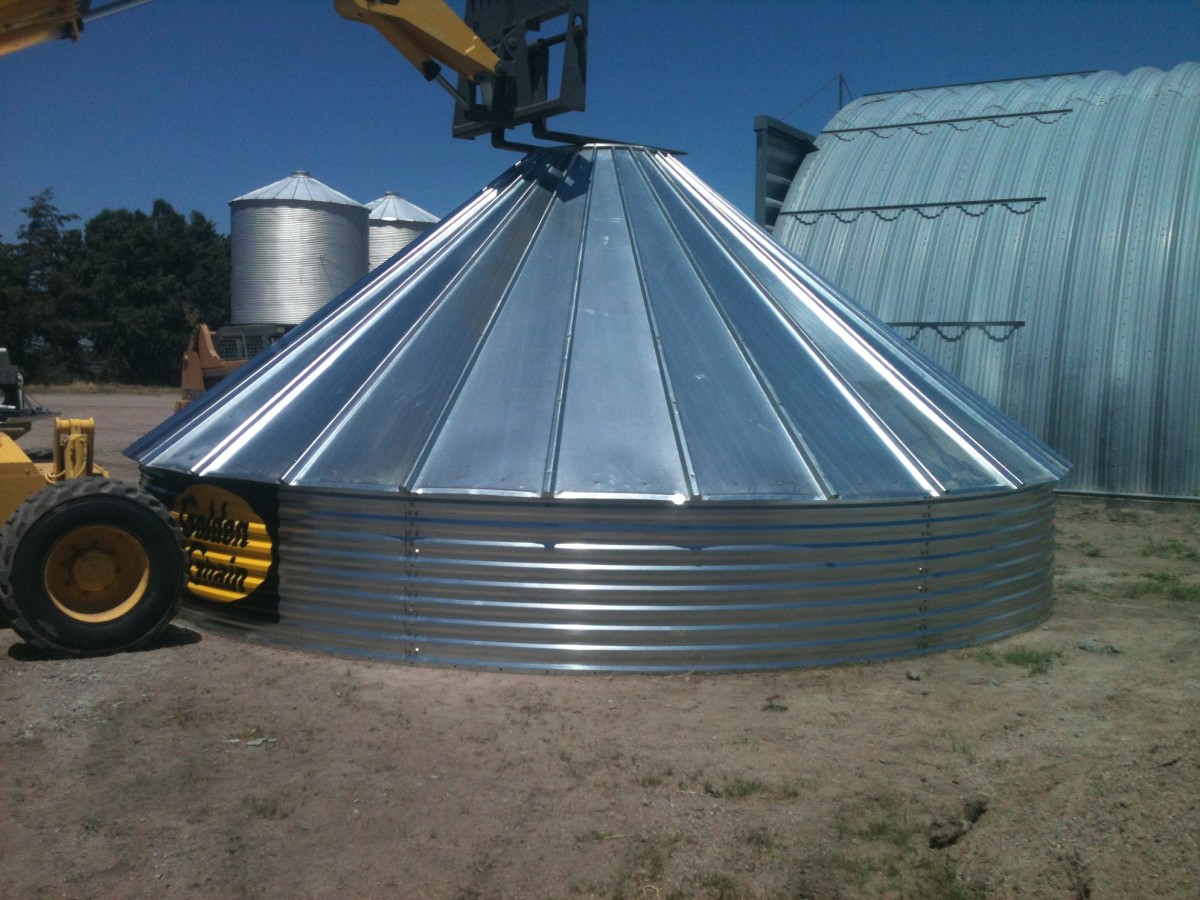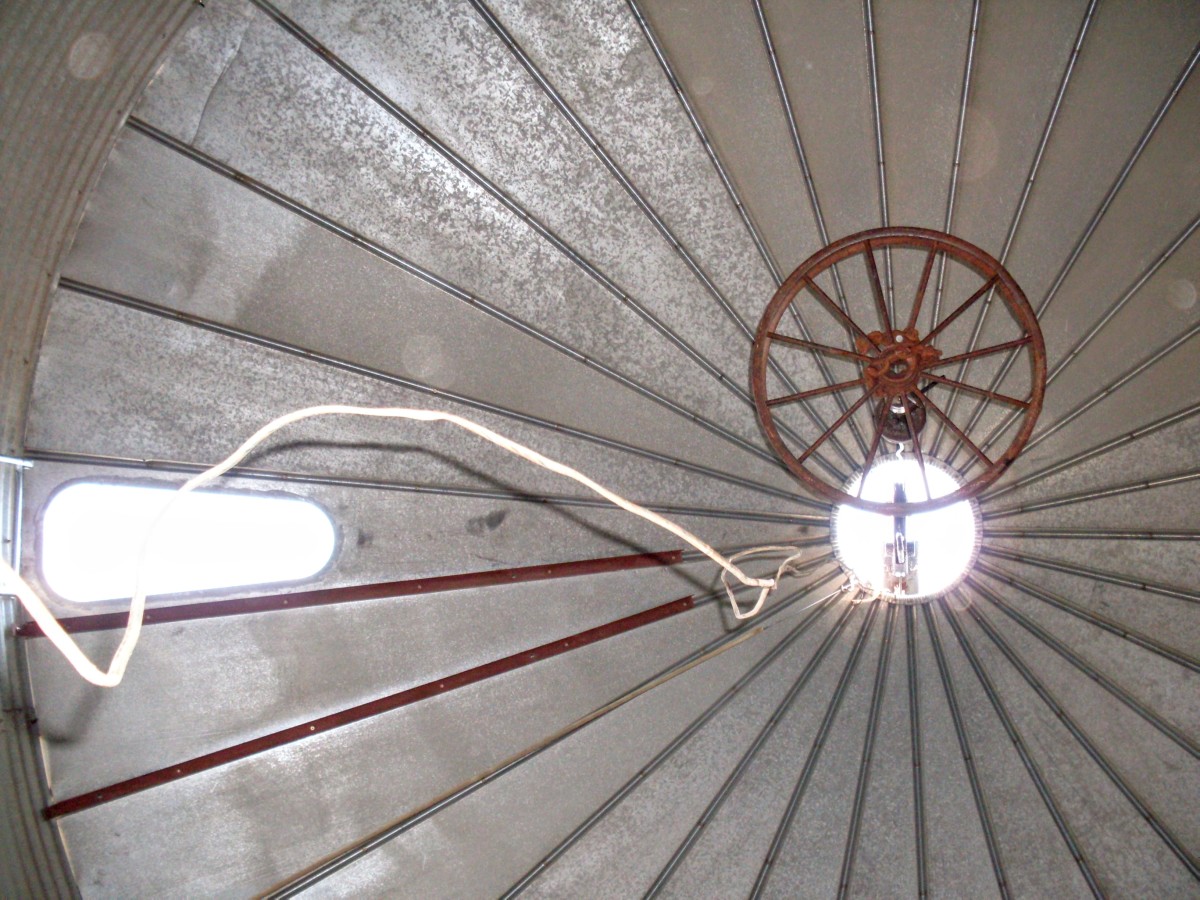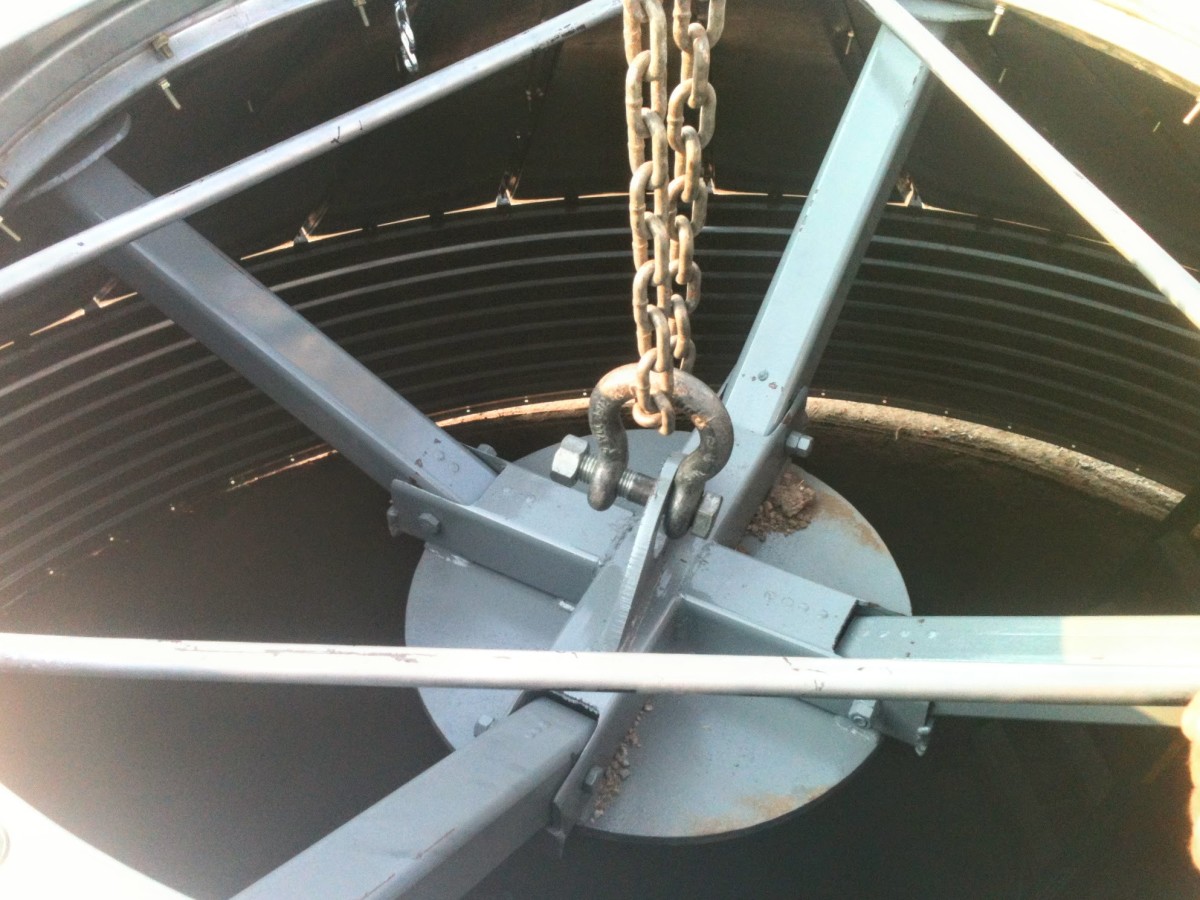Factory VS Free Range Farming
See the difference?
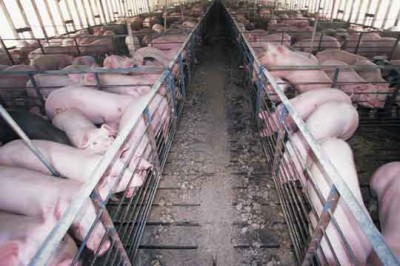
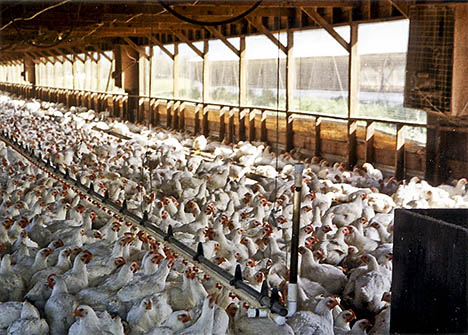
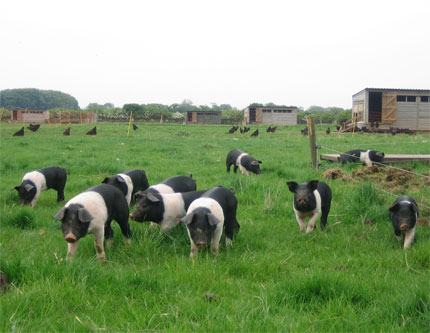
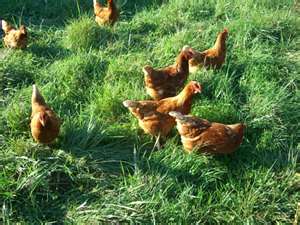
By Myranda Grecinger
As recent as one hundred years ago the term factory farming was unheard of, unfortunately today it has become a worldwide epidemic. Larger animals such as horses, cows and pigs, smaller animals such as chickens, turkeys and rabbits, even animals that one would not typically associate with a farmed animal such as foxes, minks, and fish, not to mention dogs are all being farmed, if it could even be called that, under the most despicable conditions. The reasons this industry has been allowed to go on are simple, pure profit. The truth is that factory farming while certainly increasing production is ultimately nothing more than a concentration camp for animals. The evidence will show that factory farming is indeed cruel to animals and it is time the industry of factory farming is done away with once and for all in favor of smaller farms raising a manageable number of animals in a healthier environment.
The early days of farming were the answer to an age old question “how do we get meat for food without having to spend so much time tracking an animal down?” Early settlers answered this question by raising animals specifically to provide the services and goods that they required. Often animals were allowed to roam loose on large plots of land with a human overseeing their whereabouts to ensure their protection, other times they were simply fenced in to an area where they could graze on lush vegetation and live as though they were still free in their natural ways with the small difference of being available to suit man’s needs. The herds were typically relatively small compared to those of today, so that the farmers could ensure the health and wellbeing of all of those wonderful creatures in his charge. Shepherds and cowboys alike traveled far and wide with their herds in search of the best grounds to feed their animals on. The animals were free to choose their own diet and instinctively chose those plants which would keep them the strongest. Animals were content and man was pleased, these arrangements made for fat and happy animals that served the needs of man well. That was long ago though, when men still had respect for the animals that provided for him and his focus was on their wellbeing and survival which he knew would in turn provide his own.
Today things are different and free-range animals raised in a natural environment is a practice that has gone by the wayside in favor of large factory farms that produce high profits for the owners who seem to have little or no regard for the wellbeing of the animals they raise. The conditions under which these animals are kept are downright deplorable and disgusting. Humans treat them as a product rather than living, breathing creatures with feelings and needs. They are kept in crowded warehouses or cages. Infants are ripped away from their parents. The beaks of turkeys and chickens are chopped off to prevent them from being able to peck at one another or themselves, the implication being that out of madness and boredom they would do so. Some animals suffer fates that are almost hard to fathom as many of the people enjoying the spoils of these poor creatures live in their cushy existences these animals have no hope of any peace within their short lives. They are forced to eat more than they naturally would with humans’ quite literally shoving tubes down their throats and pouring in a diet which is anything but natural, they eat until they are so fat that their own legs cannot hold them and often their hearts give out. Others are underfed and malnourished due to overpopulation and underfeeding once again with unnatural foods made with the cheapest ingredients as opposed to the healthiest. They are prevented from mating naturally or raising their own young let alone the simple rights to graze and bask in the sun. Many of these poor creatures will never in their lives see the sun as they are kept in windowless buildings that contain inadequate heating and cooling. The animals are exposed to toxins and foreign substances in their food, are forced to eat and sleep in their own filth and must receive continual doses of multiple medications before being slaughtered just to kill of the parasites and bacteria they are raised in. These animals are forced to endure horrific suffering and deprivation from the moment they are born until the moment they are put to death all in the name of profit and progress.
Imagine being born into a world where you have never known the comfort or guidance that is a mother’s love. Imagine living in a place where you were forced to live in claustrophobic conditions that included a windowless room with standing room only. Now imagine that many of those around you are literally going crazy, rambling about nothing and screaming wildly, pacing and tearing out their hair. Your care takers would come and you would plead for help but to no avail as all they would throw to you are a few scraps that you must fight your cell mates over in hopes of receiving some sustenance. Of course then again by the screams you hear a few cells over you realize that you are blessed, after all, starvation must be better than what those others must be experiencing. Your life consists of one terror after another.
You have no hope of protecting yourself should one of your strange cellmates choose to attack you because early on your captors ripped out your nails and teeth. Your life has no purpose and no meaning because every day brings the same thing, there is no hope of reprieve, soon they will choose you to begin a forced breeding program in which at the very moment of childbirth in which you see the beauty that you have created they will come and rip it away from you and there will be no peace. They will perform awful experiments on your young which will include things like growth inducers that mutate your poor children to unnatural sizes and proportions and pump them full of one strange toxin after another. The only hope you have left is death but even that is a terrifying notion, death can mean anything from suffering these horrible thing until the result is death, it can mean suffering some awful illness, or even being hung upside down and having your throat slit or having a strange tool punch a horrible blow to your head even death is an uncertain terrifying notion in this cruel world. Now realize that this is a reality, this is life for millions of animals across the world and for whatever reason this abusive monstrosity is overlooked and even accepted as an allowable practice.
“In 2008 an H.S.U.S. investigation of mistreatment of dairy cows in California led to the largest recall of beef in the US.”(Humane Society of the US, 2012) The mistreatment of animals intended for consumption means that the food that humans consume may not be in the best of health, often leading to many diseases being passed from the animals to humans, such as mad cow disease, hoof and mouth disease, and many more still. That is not the worst of it, these large feedlots on factory farms are also directly linked to major instances of air pollution and are a huge source of ethanol gas that is being sent up into the air we breathe. The chemicals used in these places are not only damaging to the animals but are also permanently damaging to the environment and the soils and water supply in the areas around them. Given all the negatives that come out of these places one may find it difficult to see how they are positive fixtures and anyway, that is because there is nothing positive about these places.
There is a better way, a method of farming that provides healthy, natural growth and development and lives for the animals and provides good tasting and healthy food as well as better production in all other animal products for humans and can be highly profitable while fostering a good relationship between man and beast. The answer is simple, a return to sustainable natural farms where animals are raised with love and respect and are able to live their lives and raise their young in peace. According to a new study, free range and organic systems of broiler production have a far better environmental impact than standard indoor production,” (Poultry World Staff, 2011) This means that these farms offer lower pollution levels, healthier animals which produce healthier products for humans and are actually more economical in terms of operation costs. With this information the fact is that the continuation of factory farming is simply senseless, it holds no benefit whatsoever for humans and is absolutely abusive to the animals it is time factory farms met their demise.
Proponents of the horrible industry have argued the following: “Factory farming is a highly profitable trade. Technological advances in the field of agriculture have brought the dream of human’s abilities to effectively raise livestock on a large scale into reality. People both desire and require many products that can only be found within the animal kingdom. Gone are the days of nomads traveling from place to place in search of the animals they need to survive and the days of the small scale struggling farmer are most certainly numbered. Any animal, from horses to fish can be easily raised in a controlled environment on a large scale. Factory farming is the future, animals were meant to be used to suit the needs of humans and be under their control, therefore, it is time we all stepped up to the plate and do what is best for human kind. Factory farming is in no way cruel as the animals do not know any better anyway, and is the best option for supplying the world with the goods it needs.
Smithfield Foods Inc. - the world's largest hog farming and slaughtering operation reported $420.8 million in operating profits in 2005” (McWilliams, 2006). Factory farming is indeed profitable in a way that ancient methods of farming could never have hoped to achieve. Smaller farms are incapable of seeing to the needs of the animals the way that factory farms can simply due to the sheer income level differences. Factory farms waste nothing, if it is not sold then it is fed back to the animals themselves so there is no loss whatsoever, natural farms cannot come close to making this claim. It is also important to remember that bigger and faster producing animals means bigger and faster producing profits, by manipulating the growth and maturity of the animals under its care, a factory farm can ensure continued profitability, a small farm cannot say the same, and because there is no limit on the amount of creatures that can be shoved in to a single area together, there is never a limit to operational growth, unlike traditional farming methods. Factory farming is clearly better for all involved.
All of these ideas about mistreatment of animals are purely ridiculous. If animals were still allowed to roam free as their ancient relatives did we would still be forced to hunt for our own food rather than simply going to the market and purchasing it. Animal populations would overrun urban areas and there would be no room for man and civilized society. Animals would be interbreeding which would cause mutations within the line of decent and soon our food sources would die out all together from these mutations. It is our duty to see to that our food source continues under our control and in manageable numbers. Animals are not intelligent and therefore cannot be expected to care for themselves. Factory farming is truly doing them a service and the reality is that we are the fittest creatures and it is therefore within our rights to do to them as we please to ensure our survival which is far more important than their wellbeing to begin with.” Fortunately most of us are capable of seeing right through these ridiculous lies.
What constitutes a profit? Is it simply the monetary value we earn from any given endeavor or is it a far more complex notion. If we are earning plenty of money but it is at the expense of contaminating our own food supply is that really profitable at all? These are the questions that must be asked when considering the idea of factory farming. The reality is that factory farming has been proven to cause pollution by chemical mean as well as by the odors and gases it produces as well as contaminated food products due to the horrible conditions of the animals within the farms. Factory farming leads to keeping animals under circumstance that we would never ever accept humans being kept under and leads to madness, sickness, mutations, disability and death among said animals. We ourselves are only mammals and should give our mammal brothers the same treatment and respect that we want for ourselves. We have a responsibility to ensure the survival of the other species that we share this planet with.
The reality is that even though the dollar signs may look tempting, there is far more to this issue than is seen at first glance. Raising a large number of animals in unnatural conditions including forced feeding of a foreign diet, mutilation and cramped, unsanitary conditions is just plain wrong. It does not matter how the details are spun, the result will be the same. We would never condone this horrid treatment of humans for any reason and we certainly should not accept it for any other animal. There is a better way of farming, the evidence has proven that this type of farming is pure and simple cruelty and is unnecessary; it is therefore the duty of the people to put a stop to it and return to a better way of fulfilling our needs when it comes to animals.
.
References
1. The Humane Society of the United States. (15 February). Hoover's Company Records, 56124
Retrieved February 20, 2012, from Entrepreneurship. (Document ID: 168211721).
http://proquest.umi.com/pqdweb?
Index=0&did=168211721&SrchMode=5&Fmt=3&retrieveGroup=0&VInst=PROD&VType=PQD
&RQT=309&VName=PQD&TS=1329796854&clientId=74379
2. Poultry World. Free range judged to have high environmental impact. (2011, June) Poultry
World, 165(6), 29 Retrieved February 20, 2012, from ABI/INFORM Trade & Industry.
(Document ID: 2390163331)
http://proquest.umi.com/pqdweb?
index=13&did=2390163331&SrchMode=5&Fmt=3&retrieveGroup=0&VInst=PROD&VType=P
QD&RQT=309&VName=PQD&TS=1329799919&clientId=74379
3. McWILLIAMS, JEREMIAH. Smithfield to buy Butterball, Armour, other brands from ConAgra
(1 August, 2006) Retrieved February 20, 2012, From the Virginian-Pilot
http://hamptonroads.com/2006/08/smithfield-buy-butterball-armour-other-brands-conagra
© 2012 Myranda Grecinger

